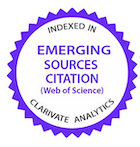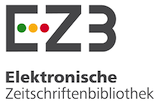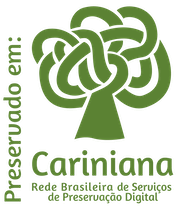Ocorrência de botulismo em bovinos confinados no Rio Grande do Sul
DOI:
https://doi.org/10.5216/cab.v11i4.3336Palavras-chave:
Clostridium botulinum, bovinos, confinamentoResumo
Botulismo é a intoxicação causada pela neurotoxina produzida pelo Clostridium botulinum, caracterizando-se por paralisia flácida ou completa da musculatura esquelética. Este trabalho relata um surto de botulismo em bovinos confinados, alimentados com silagem de milho. Amostras de fígado, conteúdo intestinal e ruminal de um dos bovinos com o quadro clínico característico de botulismo e uma porção da silagem de milho foram encaminhados para análise bacteriológica. No laboratório realizaram-se bioensaio em camundongos e soroneutralização, sendo confirmada a suspeita de botulismo tipo C. Este relato visa alertar médicos veterinários e criadores que adotam o confinamento de animais, pois esta prática de manejo aumenta a suscetibilidade ao botulismo, principalmente relacionada ao tipo e qualidade do alimento consumido.PALAVRAS CHAVE: Bovinos, Clostridium botulinum, confinamento.
Downloads
Não há dados estatísticos.
Publicado
2010-12-21
Como Citar
MABONI, Franciele -; MONEGO, Fernanda; COSTA, Mateus Matiuzzi da; DUTRA, Iveraldo; VARGAS, Agueda Palmira Castagna de. Ocorrência de botulismo em bovinos confinados no Rio Grande do Sul. Ciência Animal Brasileira / Brazilian Animal Science, Goiânia, v. 11, n. 4, p. 962–965, 2010. DOI: 10.5216/cab.v11i4.3336. Disponível em: https://revistas.ufg.br/vet/article/view/3336. Acesso em: 11 fev. 2026.
Edição
Seção
Relato de caso
Licença
Copyright (c) 2010 Ciência Animal Brasileira / Brazilian Animal Science

Este trabalho está licenciado sob uma licença Creative Commons Attribution 4.0 International License.
Autores que publicam nesta revista concordam com os seguintes termos:
- Autores mantém os direitos autorais e concedem à revista o direito de primeira publicação, com o trabalho simultaneamente licenciado sob a Licença Creative Commons Attribution que permite o compartilhamento do trabalho com reconhecimento da autoria e publicação inicial nesta revista.
- Autores têm autorização para assumir contratos adicionais separadamente, para distribuição não-exclusiva da versão do trabalho publicada nesta revista (ex.: publicar em repositório institucional ou como capítulo de livro), com reconhecimento de autoria e publicação inicial nesta revista.
- Autores têm permissão e são estimulados a publicar e distribuir seu trabalho online (ex.: em repositórios institucionais ou na sua página pessoal) a qualquer ponto antes ou durante o processo editorial, já que isso pode gerar alterações produtivas, bem como aumentar o impacto e a citação do trabalho publicado (Veja O Efeito do Acesso Livre).






























